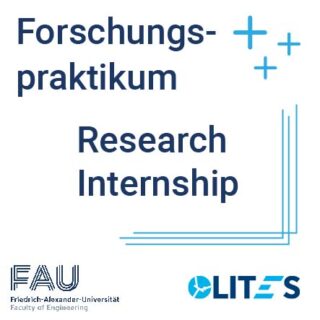FP: Automated RFIC Design Using Machine Learning
(suitable for HW/FP/MA; scope and depth will be adapted to ECTS and prior knowledge)
Description
The goal is to develop an algorithm or machine-learning approach that automates parts of RFIC design using open-source design tools. We focus on passive components such as transformers, baluns, and antennas. Based on desired performance parameters (e.g., target frequency, bandwidth, insertion loss, impedances, efficiency), a tool should generate the optimal geometry.
Research Questions
- How can geometries (transformer/balun/antenna) be parameterized so that they are ML-friendly yet manufacturable?
- Which models (classical regressors vs. deep learning) deliver the best performance in this context?
- How well can the algorithm be adapted to a different technology/PDK?
Research Goals
- Build a data/simulation pipeline (open-source and/or commercial tools) to generate training and validation data.
- Develop an algorithm or ML model that maps specs → geometry/parameters.
- Implement a GUI where users enter targets and receive a layout.
- Validate results against EM simulation; evaluate accuracy, robustness, and runtime.
Topics
- Data & Simulation
- Parametric geometry generation (Python/gdsfactory)
- Simulation with open-source tools (openEMS) and/or commercial tools (e.g., Cadence/ADS/HFSS)
-
Data preparation, feature engineering, quality checks
- Modeling & Optimization
- Training and evaluation of different ML models (CNN, RNN, reinforcement learning, etc.)
- Hyperparameter tuning, cross-validation, etc.
- GUI & Integration
- GUI: input of specs, output of geometry/parameters + simulation results
- Export of a GDS file
- Evaluation
- Benchmarks vs. reference designs; speed-up over manual design
- Documentation/contribute to a scientific paper
Skills
(Not all are required; two profiles are possible. We tailor the tasks accordingly.)
- Machine Learning / Programming
-
- Strong Python skills (NumPy, Pandas, SciPy; optional: scikit-learn, PyTorch/TensorFlow)
- Enjoy algorithms/optimization and data processing
- RF-Design / Circuit Design
- Basic knowledge of RF engineering and analog circuit design
- Interest in EM/circuit simulation and layout parameterization
- Willingness to learn EDA tools (e.g., Cadence, Qucs-S/Ngspice, openEMS, scikit-rf)

